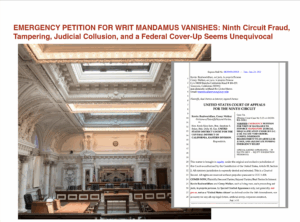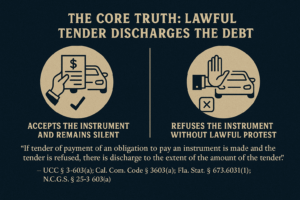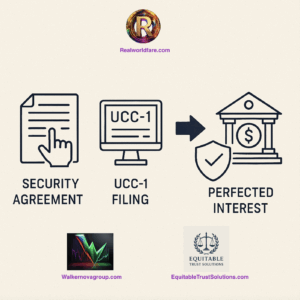Article III, Section 2, Clause 1:
The judicial Power shall extend to all Cases, in Law and Equity, arising under this Constitution, the Laws of the United States, and Treaties made, or which shall be made, under their Authority;—to all Cases affecting Ambassadors, other public Ministers and Consuls;—to all Cases of admiralty and maritime Jurisdiction; to Controversies to which the United States shall be a Party;—to Controversies between two or more States; between a State and Citizens of another State, between Citizens of different States,—between Citizens of the same State claiming Lands under Grants of different States, and between a State, or the Citizens thereof, and foreign States, Citizens or Subjects.
From early on, the Supreme Court viewed setting aside Congress’s laws on constitutional grounds as problematic and has avoided doing so unless such adjudication is unavoidable.
1 For example, in the 1798 Calder v. Bull decision, Justice James Iredell stated: If any act of Congress, or of the Legislature of a state, violates those constitutional provisions, it is unquestionably void; though, I admit, that as the authority to declare it void is of a delicate and awful nature, the court will never resort to that authority, but in a clear and urgent case.
2 Similarly, in the 1819 Trustees of Dartmouth College v. Woodward decision, Chief Justice John Marshall wrote: On more than one occasion, this court has expressed the cautious circumspection with which it approaches the consideration of [whether a law is constitutional]; and has declared, that in no doubtful case, would it pronounce a legislative act to be contrary to the constitution.
3 And, in the 1827 Ogden v. Saunders decision, Justice Bushrod Washington noted that judicial deference to the Legislative Branch means that laws should be presumed constitutional unless proved beyond all reasonable doubt.
4 Later in the nineteenth century, Chief Justice Morrison Waite stated in the Union Pacific Railroad v. United States (The Sinking Fund Cases): Every possible presumption is in favor of the validity of a statute, and this continues until the contrary is shown beyond a rational doubt. One branch of the government cannot encroach on the domain of another without danger.
5
Over five decades later, Justice Louis Brandeis, in his influential concurrence in Ashwander v. Tennessee Valley Authority, described the Constitutional Avoidance Doctrine as a series of rules under which [the Court] has avoided passing upon a large part of all the constitutional questions pressed upon it for decision.
6 The Ashwander Rules7 include:
Rule 1) The Rule against Feigned or Collusive Lawsuits. Parties to a case must be adverse to each other. Justice Brandeis stated: The Court will not pass upon the constitutionality of legislation in a friendly, non-adversary, proceeding, declining because to decide such questions ‘is legitimate only in the last resort, and as a necessity in the determination of real, earnest, and vital controversy between individuals.’
8
Rule 2) Ripeness. The court should not resolve constitutional questions prematurely. As Justice Brandeis wrote: The Court will not ‘anticipate a question of constitutional law in advance of the necessity of deciding it’
9 and ‘[i]t is not the habit of the Court to decide questions of a constitutional nature unless absolutely necessary to a decision of the case.’
10
Rule 3) Judicial Minimalism. The court should decide questions of constitutional law narrowly. Justice Brandeis stated: The Court will not ‘formulate a rule of constitutional law broader than is required by the precise facts to which it is to be applied.’
11
Rule 4) The Last Resort Rule. If possible, a court should resolve a case on non-constitutional grounds instead of resolving it on constitutional grounds. Explaining this rule, Justice Brandeis stated: The Court will not pass upon a constitutional question . . . if there is also present some other ground upon which the case may be disposed . . . . [I]f a case can be decided on either of two grounds, one involving a constitutional question, the other a question of statutory construction or general law, the Court will decide only the latter.
12 He further added: Appeals from the highest court of a state challenging its decision of a question under the Federal Constitution are frequently dismissed because the judgment can be sustained on an independent state ground.
13
Rule 5) Standing and Mootness. The complainant should suffer an actual injury; as Justice Brandeis noted: The Court will not pass upon the validity of a statute upon complaint of one who fails to show that he is injured by its operation.
14
Rule 6) Constitutional Estoppel. A party cannot challenge a law’s constitutionality when he or she enjoys the benefits of such law.15 Justice Brandeis stated: The Court will not pass upon the constitutionality of a statute at the instance of one who has availed himself of its benefits.
16
Rule 7) The Constitutional-Doubt Canon. Courts should construe statutes to be constitutional if such a construction is plausible. Explaining this requirement, Justice Brandeis noted: ‘When the validity of an act of the Congress is drawn in question, and even if a serious doubt of constitutionality is raised, it is a cardinal principle that this Court will first ascertain whether a construction of the statute is fairly possible by which the question may be avoided.’




